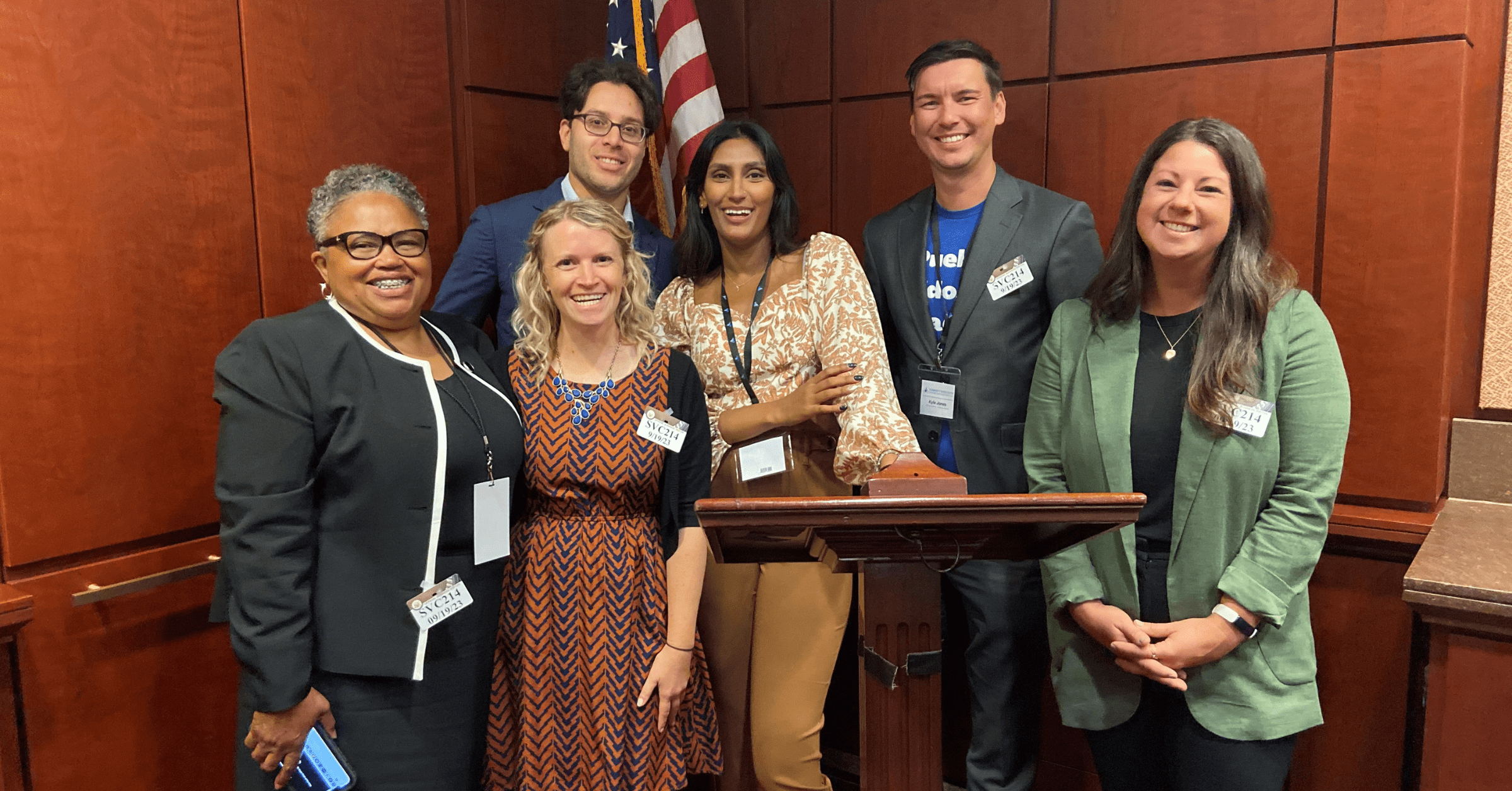Imagine living in a world where accessing safe, clean, and affordable water is not a guarantee. While that might sound like a distant existence to some, the struggle to access water is a daily reality. On September 19, 2023, Community Water Center and We the People of Detroit hosted a panel on Capitol Hill, where community members and leaders shared their stories about living with water insecurity. I traveled to D.C. to support the Water Equity and Climate Resilience (WECR) Caucus as a member organization to witness their testimony on the pressing need for safe and affordable water across the United States.
California’s Central Valley and Detroit, Michigan are hotspots for the U.S. water crisis, with the burden of unsafe and unaffordable water disproportionately affecting low-income communities and communities of color.
During the panel, Susana De Anda, Co-Founder and Executive Director of Community Water Center, emphasized the importance of engaging with frontline communities to create and fund programs that respond to on-the-ground needs and create sustainable solutions. Sandra Garcia, a resident of Poplar, California, and a former water board member, expressed the need for federal programs to support families with their water bills. Monica Lewis-Patrick, Co-Founder, CEO, and President of We The People of Detroit, pointed out the contradiction of being considered the leaders of the free world while failing to provide the basic necessity of water to residents.
We passed in 2012 the human right to water, but to this day, we are not fulfilling this dream.
Susana De Anda, Co-Founder and Executive Director, Community Water Center
One of the core issues discussed during the panel was the impact of aging water infrastructure and rising water rates on everyday people. Backlogged maintenance, climate-driven droughts, extreme weather events, and the removal of lead pipes have all contributed to the rising costs of water across the country. These rising and unaffordable water bills put households at risk of accumulating debt, experiencing water shutoffs, or even losing their homes.
Unlike energy and phone bills, there is currently no permanent federal program to help low-income households with their water bills.
Water contamination is not a natural disaster. We are asking for support and federal programs to support us with our water bills.
Sandra Garcia, Poplar, CA resident and former water board member
California and Michigan have already received substantial funding through the temporary Low Income Household Water Assistance Program (LIHWAP), which was set up as a pandemic relief measure but without additional Congressional action, this lifeline is running dry.
Members of Congress from California and Michigan, such as Senator Padilla and Representatives Tlaib and Dingle, have been advocating for a permanent federal water assistance program. Community Water Center and We the People of Detroit are actively working to establish low-income water affordability programs in their states, which would be supplemented with additional federal funding.
In a global pandemic, Black people made up 14% of the state of Michigan’s population, but 40% of the deaths. We saw whole families wiped out. We had to plead with our leaders, our governor, and petition the national government to turn the water on. You cannot be declared the leaders of the free world if you cannot provide this basic necessity to your residents.
Monica Lewis-Patrick, Co-Founder, CEO and President, We The People of Detroit
The message from those on the frontlines of the water crisis is clear: they are not asking for handouts but rather support to ensure that all people in the U.S. can access clean and affordable water. Access to clean water is a fundamental human right, and it is essential that policymakers recognize and act upon this necessity. As we move forward, we must remember that storytelling is power– shifting the narrative around water is the key to shifting public perception and compelling leaders to prioritize water affordability.
What’s next?
Learn more about the WECR Caucus and their powerful, impactful work by reading the Water Justice Panel press release, or by visiting their website.
